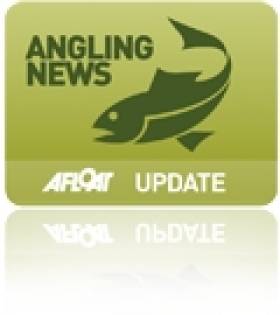Displaying items by tag: Home Nations Internationals
#Angling - 2014 is proving to be a momentous year for shore angling in Ireland with a huge victory by Team Ireland at the Home Nations International Shore Angling Championships, which took place on the East Coast of Scotland last weekend.
The Senior Mens, Ladies and Under 16s teams all won gold, while the Under 21s Youth team took fourth place at this year's Home Nations Internationals, organised by the Scottish Federation of Sea Anglers and fished over two days at Montrose, a small town some 30 miles north of Dundee.
The championships - one of the highlights of the Home Nations angling calendar - are run under the auspices of the Sea Angling Liaison Committee of the United Kingdom and Ireland, and all the Irish anglers had fished the Irish Federation of Sea Anglers approved provincial qualifiers and the All-Ireland Inter-Provincial competitions to get their place on Team Ireland.
Friday 4 July saw the start of a highly competitive two days' fishing on Lunan beach, which proved challenging for all teams as conditions were wet, windy and weedy.
On day two, however, the weather improved. The Ladies, Under 21s and Under 16s teams fished the estuary near the Tay bridge in Dundee, a muddy estuary with flounder and eels as top catches. The Senior Men’s team, meanwhile, fished a rock venue and had mixed bags of codling, rockling and conger eels.
The success of all the teams is very positive in ensuring a future for shore angling for all in Ireland. This was also the inaugural championship for the Ladies teams as it was the first year that England, Wales Scotland and Ireland all sent women to the championships. Their success will surely prove a big boost for women's angling in Ireland.
The teams were supported by Angling Council of Ireland and Inland Fisheries Ireland, who are considering further more substantial financial support for international teams due to the obvious benefits of having top-class ambassadors abroad espousing the quality of angling and hospitality in Ireland.
The involvement and support from Coaching Ireland and the Irish Sports Council (ISC) has had obvious benefits, though according to Irish Federation of Sea Anglers (IFSA) chairman Tom Lillis: "It is about time the ISC opened the purse strings to get fully behind the IFSA as we will be hosting two CIPS World Championships in Ireland with a World Boat Championships in 2015, followed by the world Shore Fishing Championships for Men and Women in 2016."
The IFSA congratulated everyone involved for their hard work and dedication and thanked the Scottish Federation for their hospitality and friendship.
Team Ireland:
Senior Men's Team - Manager: John O'Brien; Team: Mike Curtin, Martin Howlin, Joe Carley, Noel Fogarty, Paul Whelan and reserve Peter Atkins
Ladies' Team - Manager: Jane Cantwell; Team: Lisa Gormley, Paula Johnston, Mary Hyland, Linda Manton, Anne Whitty
Youth Team/Under 21s - Manager: Jim Snoddy; Team: Gavin Fogarty, Alan Turner, Cian Egan, Ross Nolan, Nathan Davidson
Under 16s Team - Manager: John Kinsella; Team: Eamon Jones, Conor McDermott, Sean Cushin, Ruari Ganley, David Farrelly






























































